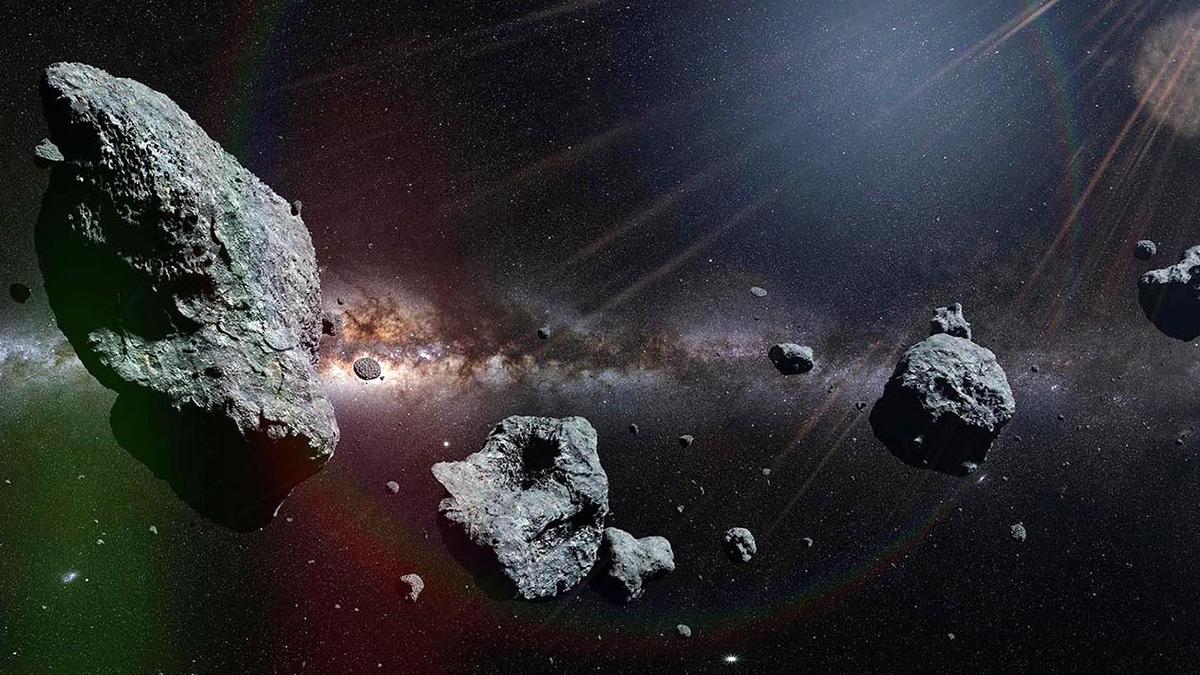
Sahara space rock 4.5 billion years old upends assumptions about the early Solar System Premium
The Hindu
In new research published in Nature Communications, scientists analysed lead and uranium isotopes in Erg Chech 002 and calculated it is some 4.56556 billion years old, give or take 120,000 years
In May 2020, some unusual rocks containing distinctive greenish crystals were found in the Erg Chech sand sea, a dune-filled region of the Sahara Desert in southern Algeria.
On close inspection, the rocks turned out to be from outer space: lumps of rubble billions of years old, left over from the dawn of the Solar System.
They were all pieces of a meteorite known as Erg Chech 002, which is the oldest volcanic rock ever found, having melted long ago in the fires of some now-vanished ancient protoplanet.
In new research published in Nature Communications, we analysed lead and uranium isotopes in Erg Chech 002 and calculated it is some 4.56556 billion years old, give or take 120,000 years. This is one of the most precise ages ever calculated for an object from space – and our results also cast doubt on some common assumptions about the early Solar System.
Also Read | Unique, ancient space rock may have diversified life on Earth
Around 4.567 billion years ago, our Solar System formed from a vast cloud of gas and dust. Among the many elements in this cloud was aluminium, which came in two forms.
First is the stable form, aluminium-27. Second is aluminium-26, a radioactive isotope mainly produced by exploding stars, which decays over time into magnesium-26.













